France, India, EU miffed as UN declares day to combat Islamophobia
In a significant move, the United Nations this week officially recognized March 15 as the International Day to Combat Islamophobia, but some countries chose not to support the resolution.
France, India, and the European Union surprised both their allies and adversaries by opposing the move, which the world body said was aimed at fostering global dialogue on the promotion of a culture of tolerance and peace, based on respect for human rights and the diversity of religions and beliefs.
The resolution was adopted at the 76th session of the UN General Assembly (UNGA) on Tuesday, seeking to recognize March 15 as the International Day to Combat Islamophobia to mark the anniversary of the 2019 deadly attack on two mosques in New Zealand that left 51 people dead.
Proposed by Pakistan, the proposal was backed by 55 Muslim-majority countries including Iran, Egypt, Turkey, Qatar, Syria, Algeria, Saudi Arabia, Morocco, and other countries in the Persian Gulf and North Africa.
The resolution was co-sponsored by several other states including Russia and China.
Representatives from France and India, the two countries where minority Muslims have long complained of Islamophobic attacks and hate crimes, stood in opposition to the resolution.
The UN 🇺🇳 proclaims March 15 as the “international day to combat Islamophobia.”
— Khaled Beydoun (@KhaledBeydoun) March 17, 2022
Good first step.
Now the United Nations should do MORE to COMBAT Islamophobia in China, France, India + everywhere else
France calls it ‘unsatisfying’
Calling the resolution “unsatisfying” and problematic, Nicolas de Riviere, the French permanent representative to the UN, told the UNGA that his country supported the protection of all religions and beliefs but opposed the singling out of a specific religion, referring to Islam.
“The term Islamophobia has no agreed-upon definition in international law, unlike the freedom of religion or conviction. But it’s this liberty that France defends, as well as all the other public freedoms, such as the freedom of expression or conviction,” de Riviere said.
“The phrase also suggests that it’s the religion itself that is protected, not the believers. Yet it’s the liberty to believe, or not believe, or the right to change religion, that we should promote.”
France said it supports the protection of all religions and beliefs but the creation of an international day “does not respond” to concerns to counter all forms of discrimination.
Pertinently, Muslims in France have seen an alarming rise in Islamaphobia, with the tacit backing of the state. Muslim women have been forced to take off their hijab (religious headscarf) and mosques have been forcibly shut in many cities.
EU dubs it ‘unnecessary duplication’
De Riviere’s remarks were echoed by the European Union, a continental alliance of 27 nations.
In a statement to the UNGA, the EU said it was bothered by additions in international days, adding that a focus on Islamophobia was an “unnecessary duplication” after the UN in 2019 adopted 22 August as an “International Day Commemorating the Victims of Acts of Violence Based on Religion or Belief”.
“We are concerned with the approach of addressing only one religion through a General Assembly initiative,” the EU statement said.
“By using the term ‘Islamophobia’ instead of ‘anti-Muslim discrimination’ or ‘anti-Muslim hatred’, the OIC initiative focuses on protecting religion as such which is an approach that undermines the protection of the individual human rights of persons, such as the rights to freedom of opinion and expression, including the right to debate and criticize religion.”
India sees it as discriminatory
India, ruled by a Hindu nationalist political party, said it did not oppose the resolution proposed by the Organisation of Islamic Cooperation (OIC) but that the denouncement of bigotry at the UN should apply to all religions, not just Islam and Muslims.
Speaking at the UNGA after the resolution was adopted, India's envoy to UN, T S Tirumurti, said: "This resolution may well end up downplaying the seriousness of phobias against all other religions."
Yesterday, UN General Assembly adopted a resolution to declare March 15 as International Day to Combat Islamophobia. India opposed the resolution! pic.twitter.com/DkDL3FYuR8
— Ashok Swain (@ashoswai) March 16, 2022
Tirumurti noted that it was "unfortunate that word 'pluralism' finds no mention in the resolution".
"We are concerned about elevating the phobia against one religion to the level of an international day, to the exclusion of all the others. Celebration of a religion is one thing, but to commemorate the combatting of hatred against one religion is quite another,” he further added.
‘Our voice is heard’
Pakistan introduced the resolution on behalf of the 57-member Organization of Islamic Cooperation stating that Islamophobia has emerged as a new form of racism that includes, among others, discriminatory travel bans, hate speech, and the targeting of girls and women for their dress.
Prime Minister Imran Khan congratulated Muslims of the world after the resolution was adopted.
"Our voice against the rising tide of Islamophobia has been heard and the UN has adopted a landmark resolution introduced by Pakistan," he tweeted.
"Today, the UN has finally recognized the grave challenge confronting the world: of Islamophobia, respect for religious symbols and practices, and of curtailing systematic hate speech and discrimination against Muslims,” the Pakistani premier added.
I want to congratulate the Muslim Ummah today as our voice against the rising tide of Islamophobia has been heard & the UN has adopted a landmark resolution introduced by Pakistan, on behalf of OIC, designating 15 March as International Day to Combat Islamophobia.
— Imran Khan (@ImranKhanPTI) March 15, 2022
At the UNGA session, Pakistani ambassador Munir Akram said “Islamophobia is a reality”, stressing the need to address it.
Akram said Islamophobia’s manifestations — hate speech, discrimination, and violence against Muslims — were proliferating in several parts of the world.
“Such acts of discrimination, hostility and violence towards Muslim individuals and communities constitute grave violations of their human rights and violate their freedom of religion and belief. They also cause great anguish within the Muslim world,” the envoy said in his remarks on Tuesday.
‘No surprise’
Rayan Freschi, a researcher for Cage, a human rights group advocating for Muslim communities affected by counter-terrorism policies, was quoted as saying by Middle East Eye that French opposition to the UN resolution was “no surprise”.
“France has gradually institutionalized Islamophobia through the adoption of laws and policies severely restricting Muslim's ability to practice their faith freely. Under Emmanuel Macron's presidency, it took a step further by deliberately pursuing anti-Muslim persecution,” Freschi stated.
“Hence, France is an Islamophobic state which can only oppose the establishment of an international day which could help hold it to account for its Islamophobia," he added.
The adoption of the resolution comes after the UN special rapporteur on freedom of religion or belief in a report last year said anti-Muslim hatred had reached "epidemic proportions", citing examples of Islamophobia in both France and India.

India downgrades ties with Pakistan after deadly Kashmir attack
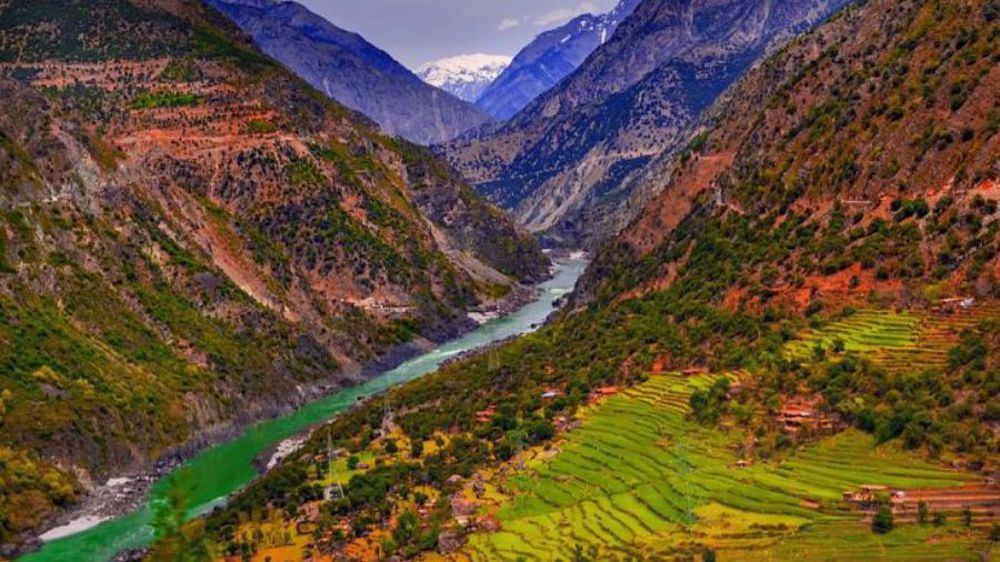
India suspends water treaty with Pakistan after terror attack
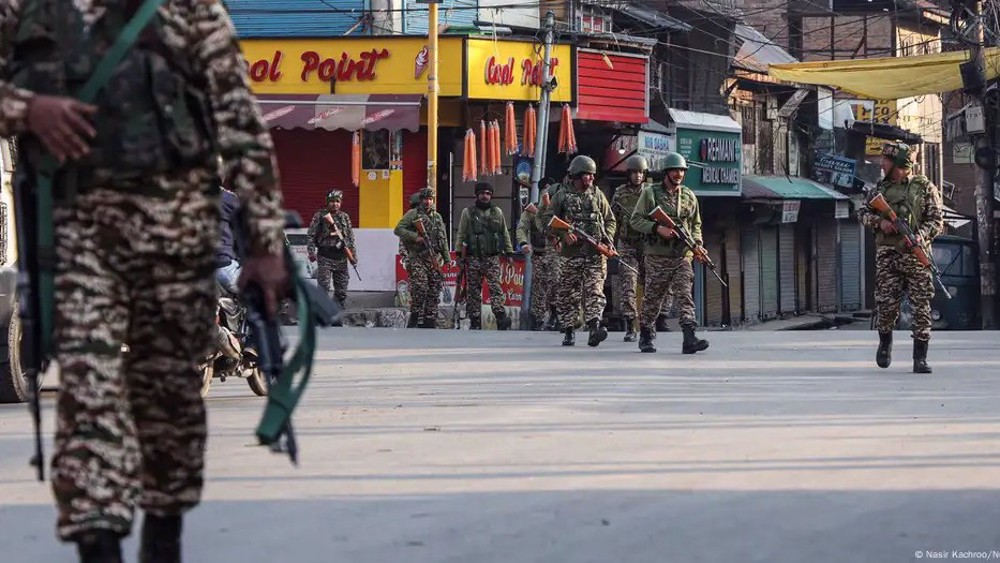
Manhunt underway for gunmen in Kashmir attack as death toll rises to 26
VIDEO | Palestinian civil defense rejects Israel’s probe and exposes the crime
India downgrades ties with Pakistan after deadly Kashmir attack
Iran’s steel output up 3.7% y/y to 3.3 million mt in March
There is good chance that US and Iran can reach an agreement: Veteran diplomat
VIDEO | Yemen faces environmental crisis due to oil spill caused by US strike
Israeli forces murder minor, critically injure young Palestinian during West Bank raids
Yemen's president orders nationwide ban on all US products
France detains Iranian journalist amid crackdown on pro-Palestinian voices


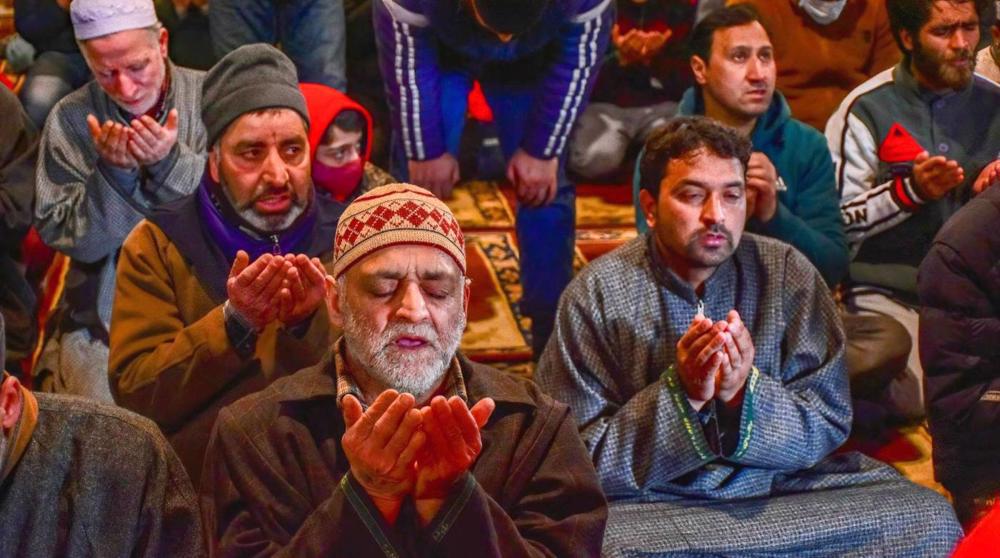
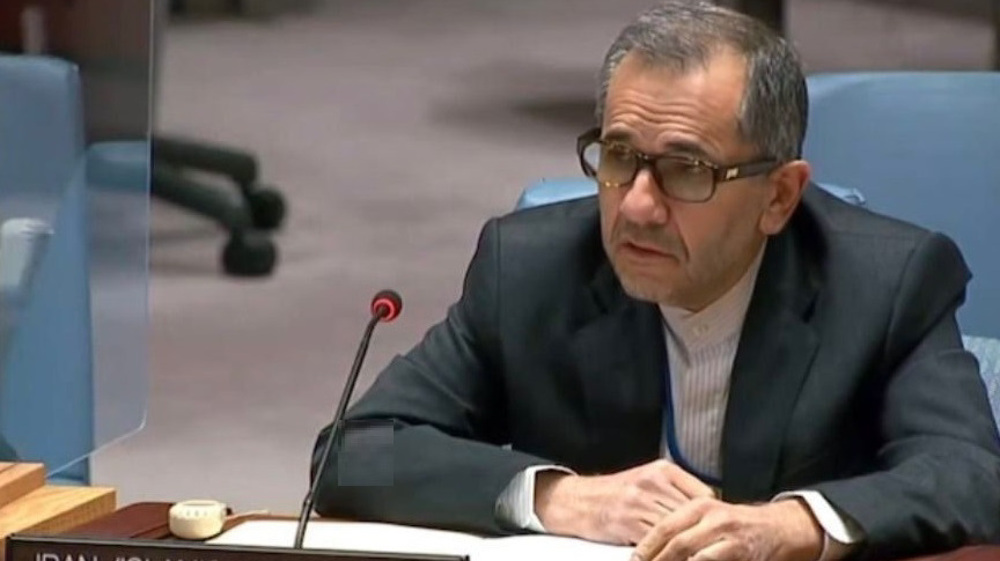



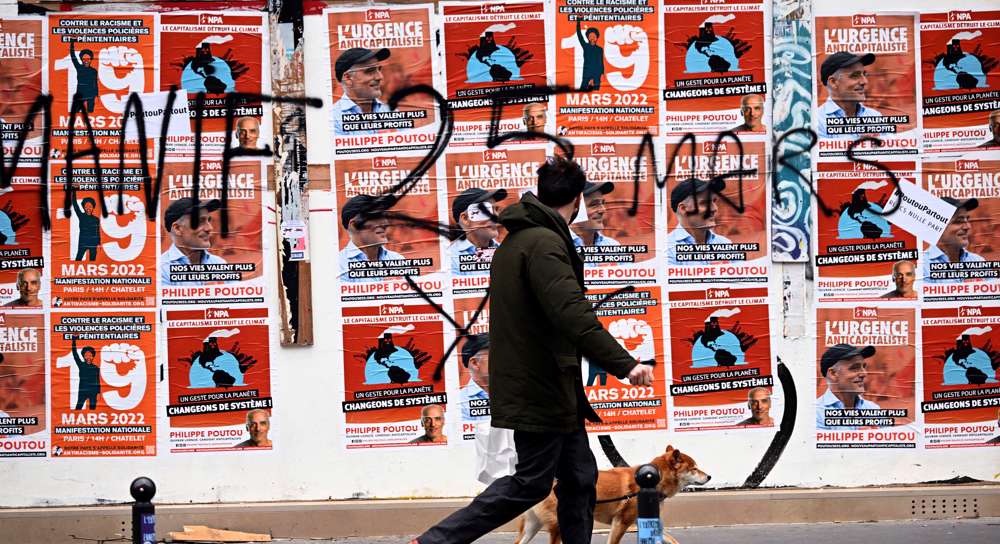


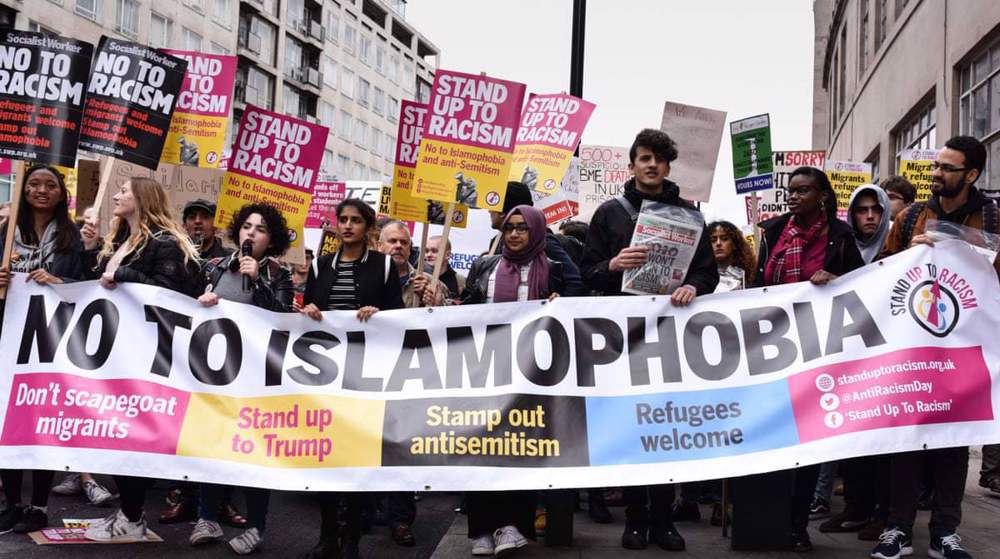
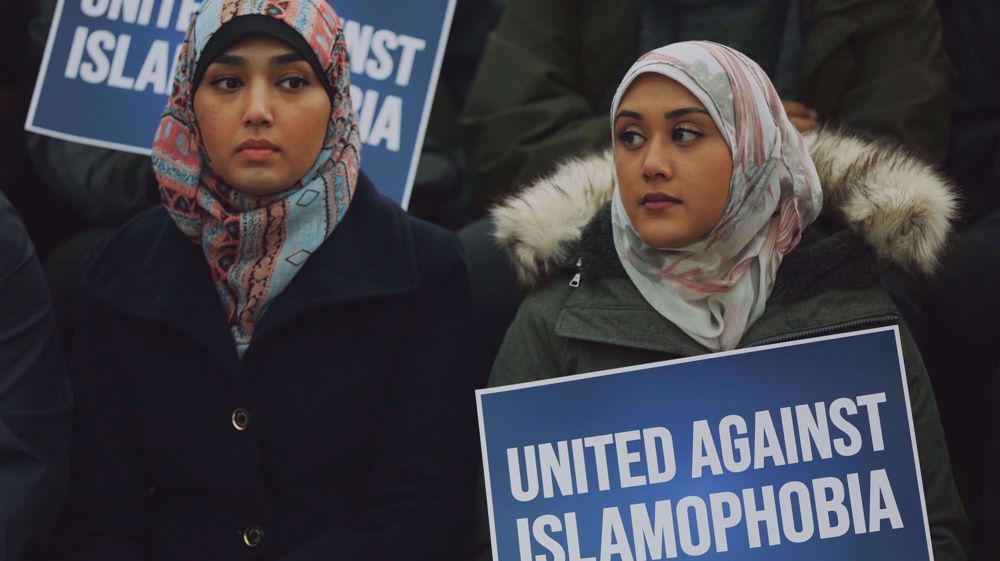
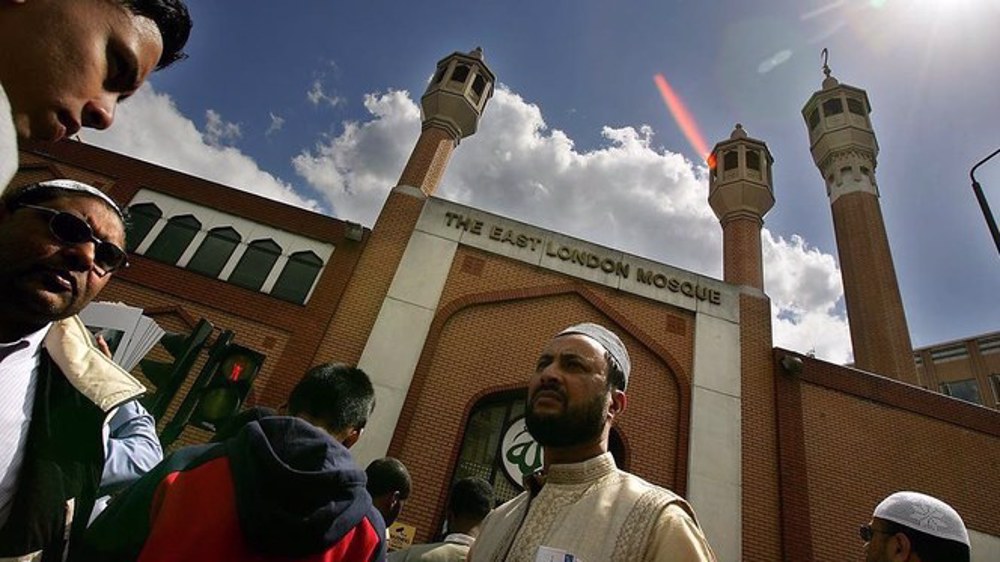

 This makes it easy to access the Press TV website
This makes it easy to access the Press TV website